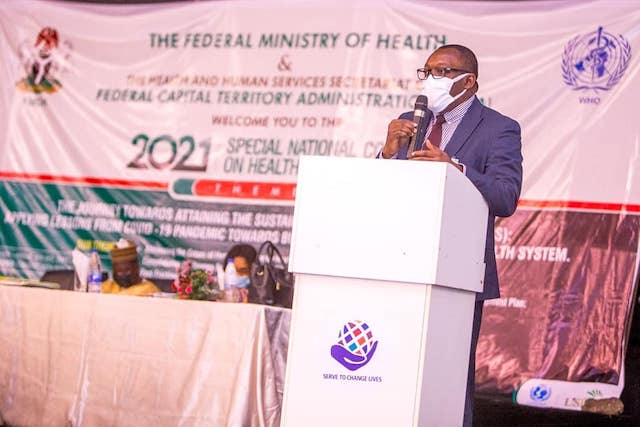The Nigeria Centre for Disease Control and Prevention (NCDC) has issued a public warning about a significant threat posed by a fungal infection.
Dr Ifedayo Adetifa, the Director-General of NCDC, gave the warning in Abuja, at the stakeholders’ meeting addressing the morbidity and mortality from invasive fungal diseases in Nigeria.
He said; “Fungal pathogens are a major threat to public health as they were becoming increasingly common and resistant to treatment with only four classes of antifungal medicines currently available, and few candidates in the clinical pipeline.
”Most fungal pathogens lack rapid and sensitive diagnostics and those that exist were not widely available or affordable in the country,” he said.
The NCDC boss said that the invasive forms of these fungal infections often affect severely ill patients and those with significant underlying immune system-related conditions.
“Populations at greatest risk of invasive fungal infections include those with cancer, HIV/AIDS, organ transplants, chronic respiratory disease, and post-primary tuberculosis infection,” he said.
Meanwhile, Dr Rita Oladele, a microbiologist at the Lagos University Teaching Hospital (LUTH), said that the NIFUSCAB project is being driven by NCDC with the data generated being stored in its data repository.
Oladele said that invasive fungal infections were life-threatening diseases with significant morbidity and mortality.
“Some of the drugs to treat these diseases are not routinely accessible and affordable.
“Two of these infections, if not promptly diagnosed result in an over 70 per cent mortality rate. In 2014, an estimate of serious fungal infections in the country was done,” she said.
She said over 960,000 Nigerians are estimated to be affected by substantial mortality annually.
“A survey of doctors in Nigeria in the same year revealed that only 2 (0.002 per cent) out of 1,046 doctors, had a good level of awareness and knowledge of invasive fungal diseases,” she explained.
She said that there have been documented reports of outbreaks of Candida Auris, (a multi-drug resistant organism) in various countries of the world, and recently (2022) “we have documented an outbreak in Nigeria which is still ongoing.
“Mucormycosis (the black mould) which was a major scare in India during the peak of the COVID-19 pandemic has also been documented amongst Nigerian patients. One of the drugs to manage this condition is not yet registered in Nigeria,” she explained.
She said that the World Health Organisation AMR programme recognised the significant role that fungal infections play in in-hospital outcomes of patients, so they recently (2022) generated a WHO fungal priority pathogens list.
“Nigeria as a country has taken the bull by the horns and started surveillance for these priority pathogens.
“We have built capacity in six teaching hospitals in the country to readily conduct surveillance and better manage the patients at risk of these diseases,” she said.
She said that this makes the country, one of the first countries to start surveillance of these diseases in Africa.
“All hands must be on board to ensure the success of this programme because the data generated would help develop policies that would guide better management of the Nigerian patient,” she advised. CONTINUE READING……………….
THIS IS FOR YOU🤳🏾👨🏼💻
For your Surprise birthday wishes, Business Advert Placement, Publicity Online and offline, Press Release, Social Media Management, For Your Content Writer Plug, Personality Promotion, Special Report, Featured Story, Conference, And Interviews – CONTACT US @VAM on WhatsApp/Call📞@ 08072633727 📲




